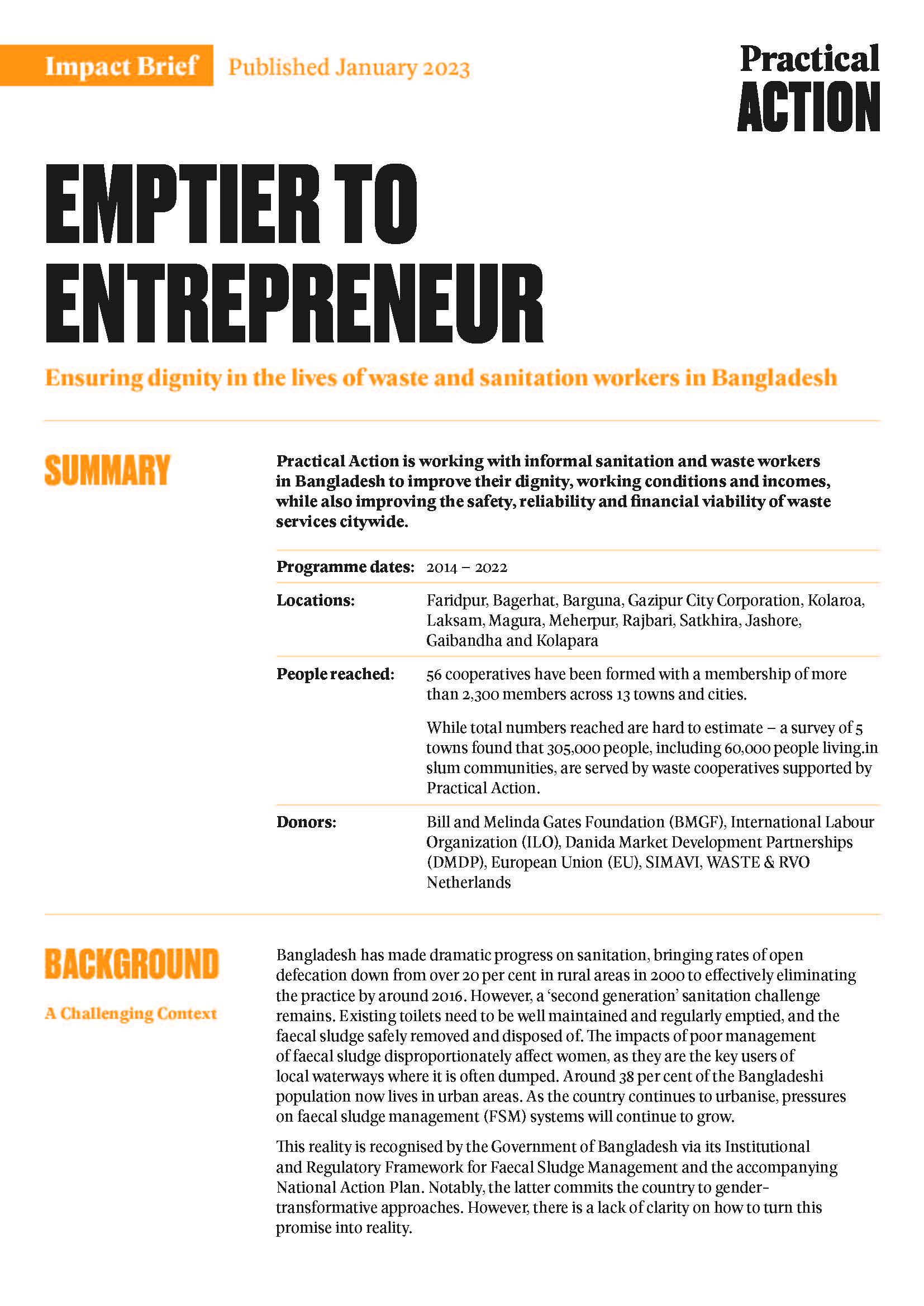Emptier to Entrepreneur
Publisher(s): Practical Action

Category(s): Reports
Language: English
Publication Year: 2023
Document Type: PDF
Bangladesh has made dramatic progress on sanitation, bringing rates of open defecation down from over 20 per cent in rural areas in 2000 to effectively eliminating the practice by around 2016. However, a ‘second generation’ sanitation challenge
remains. Existing toilets need to be well maintained and regularly emptied, and the faecal sludge safely removed and disposed of. The impacts of poor management of faecal sludge disproportionately affect women, as they are the key users of local waterways where it is often dumped. Around 38 per cent of the Bangladeshi population now lives in urban areas. As the country continues to urbanise, pressures on faecal sludge management (FSM) systems will continue to grow. This reality is recognised by the Government of Bangladesh via its Institutional
and Regulatory Framework for Faecal Sludge Management and the accompanying
National Action Plan. Notably, the latter commits the country to gender-transformative approaches. However, there is a lack of clarity on how to turn this promise into reality.
Copyright
This is an open access work distributed under the terms of the Creative Commons Attribution License, which permits unrestricted use, distribution, and reproduction in any medium, provided the original work is properly cited.
No comment yet.